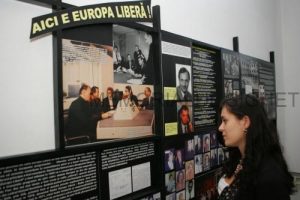Western radio stations broadcasting in Romanian made up for the premeditated lack of information whereby the Party apparatus and Securitate aimed to isolate the population from world events and even events in their own country. Tedious and stereotypical propaganda disgusted people to such a great extent that they regarded it as mendacious from the outset.
Radio broadcasts from the West, on the other hand, enjoyed complete trust, whether they were on politics, literature, sport, or entertainment. This exclusively oral culture educated two generations of Romanians, who, with its help, were able mentally to survive the Cold War and communism.
For Romanians, the presenters of Free Europe, the BBC, the Voice of America and the Voice of Germany became members of the family, without their ever having seen their faces. Strictly forbidden, these voices of democracy were listened to in secret, and then passed on by word of mouth, stimulating solidarity and complicity in the spirit of western democracy. The Party and the Securitate treated listening to and passing on news from western radio stations as crimes, as proven by numerous convictions for “public agitation”, as well as numerous surveillance and harassment operations, and interrogations on this subject.
Intellectuals who directly or indirectly opposed the cultural policies of the Party were indiscriminately labelled “agents of Free Europe”.
There were only two occasions when Free Europe was listened to on the street and through open windows: during the invasion of Czechoslovakia, in 1968, and for a few days after the earthquake of 4 March 1977.
posted in: Second Floor










